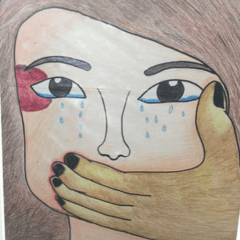In honor of #GivingTuesday, I looked back to see which articles we’ve published online about how organizations and individuals in the meetings industry give back to the world have most resonated with readers. And by a large margin, the answer is the stories about how planners and professionals in the hospitality industry have taken on the uncomfortable challenge of helping to stop human trafficking.
In March 2016, Editor in Chief Michelle Russell interviewed two Maritz Travel employees — Jana Nester, meeting and event manager, and Laura Pilkenton, manager of guest services — who traveled to Thailand for 10 days with ECPAT-USA (Ending Child Slavery at the Source) on an Advocacy Journey to learn about the issue and how it intersects with the meetings, travel, and hospitality industries.
In 2014, Maritz Global Events became the first meetings and events company to sign ECPAT-USA’s Tourism Child-Protection Code of Conduct (The Code), which formalized the company’s commitment to help stop human trafficking and raise awareness of the role the meetings industry can play in ending these human-rights violations.
“The commitment is about building awareness,” David Peckinpaugh, CEO of Maritz Global Events, told Convene Podcast host Ashley Milne-Tyte (you can hear their conversation here.) “A lot of people are concerned about, what am I committing to? As you can imagine when we rolled this out four-plus years ago, many of our internal teams and staff were uncomfortable with the topic, and understandably. But over that now four-plus years our organization has really gravitated and embraced this issue.
“Really, the code is first and foremost about education and building awareness,” Peckinpaugh said. “Because if we can do that, it’s amazing the kind of impact and the ability we can have to stop trafficking in its tracks as those opportunities arise.”
In a report issued this fall, ECPAT-USA reported on the success of that the awareness and training effort: More than half of U.S. hotels now offer employee training on how to spot and respond to suspected child sex trafficking. In addition to hotels, airlines — including Delta, United, American, and others — have also committed to employee training.
 The report also reiterated the unique role that event organizers can play in creating change. “The meetings industry has great power to effect change on child sex trafficking because, while meetings companies often only have a few employees, you represent many clients, and therefore can send a powerful message to the hospitality industry,” ECPAT said. “Meeting planning professionals are also well positioned to speak to corporate travel executives about this issue because corporate travel executives look to you to provide information about travel industry trends and risk areas.”
The report also reiterated the unique role that event organizers can play in creating change. “The meetings industry has great power to effect change on child sex trafficking because, while meetings companies often only have a few employees, you represent many clients, and therefore can send a powerful message to the hospitality industry,” ECPAT said. “Meeting planning professionals are also well positioned to speak to corporate travel executives about this issue because corporate travel executives look to you to provide information about travel industry trends and risk areas.”
A concrete way that meeting planning professionals can combat child sex trafficking is by integrating requirements about anti-trafficking policies and training into RFPs. Convene‘s story about how to do that can be found here, or read ECPAT’s article, “No Vacancy: How the Meetings and Events Industry Can Help Stop Child Sex Trafficking.”


